The Ferrari 250 Gran Turismo Omologato (GTO) needs little introduction as the most iconic, most habitable, street-useable, race-winning, World Championship-winning – and simply gorgeous – closed two-seat Coupe car from the world-famous Maranello factory.
The GTO was developed to contest the 1962 3-litre class FIA GT World Championship series of classical endurance racing events.
Selective production at Maranello and in the Scaglietti body plant in Modena ran on through the 1963 FIA GT World Championship and – sure enough – the Ferrari 250 GTO won the World title both seasons in succession.
Over the long decades since then, the Ferrari 250 GTO has commanded ever-increasing interest from the car connoisseur and art investor alike.
Valuable levels have been achieved by the relatively few examples that have come to market over the past 20 years. Offered at the 2014 Bonhams Quail Lodge auction is nothing less than GTO chassis serial 3851GT, fresh from the longest-term single ownership of any one of these mouth-watering, completely desirable and much-coveted Berlinettas.
Overall, the Ferrari factory manufactured 39 cars which may be considered within the rarefied GTO family.
Four of the core group of 35 cars with 1962-63 style bodywork were later converted into lower, flatter, longer-nosed GTO/64 body form. So 31 of the 250 GTO/62-63 series have survived, of which only 28 cars have the 3-litre V12 engine as true 250 GTOs, and three 4-litre V12 engines as 330 GTOs.
Offered at the 2014 Bonhams Monterey Classic Car Week auction is the 17th of the 3-litre true 250 GTOs, first completed and campaigned right at the end of the 1962 International race season, and then as rebuilt fresh and ready for a new ownership, and a resumed career, in 1963.
Ferrari 250 GTO chassis 3851GT offered here was acquired by young Italian enthusiast Fabrizio Violati 49 years ago, in 1965.
He was scion of a wealthy family with considerable business interests in agriculture and mineral water bottling and distribution under the brand name Ferrarelle. In essence the genial, hard driving Roman became the fourth owner that 3851GT had during its young life.

The car was the 19th Ferrari GTO to be completed and invoiced by the Maranello factory, having been signed-off initially there on September 11, 1962.
Since two of the preceding examples had been 330 GTOs with 4-litre engines instead of the GT-homologated 3-litre 250 units it may be regarded as the 17th 250 GTO.
It was finished in metallic pale grey with lengthwise red, white and blue centerline stripes and was collected by its first owner, the experienced and rugged 34-year-old French privateer Jo Schlesser.
He committed it immediately to competition in the annual Tour de France Automobile, run that year from September 15-23. Schlesser was to co-drive the car with his 36 year-old friend Henri Oreiller.
While Schlesser was then building his reputation as a leading French circuit-racer, the Parisian Oreiller was already a national celebrity.
He had been a member of the French Resistance during the Second World War, and took up competitive skiing after 1945. He was nicknamed the ‘Parisian of Val d’Isere’ or ‘The Madman of the Downhill’ and – representing France in 1948 at the first postwar Winter Olympics in St Moritz – he won two gold medals and a bronze, to become the Game’s most successful athlete.
He won the flagship Downhill ski race with a time fully four seconds faster than the silver medalist, added a second gold medal in the combined event and then a bronze in the special slalom. He competed in the 1950 World Championships at Aspen, Colorado, finishing fourth there in the newly introduced giant slalom.
He also competed in the 1952 Winter Olympics at Oslo, Norway, before retiring from competitive skiing at the age of 26 – to pursue his alternative interest in motor racing and rallying.
The route of the 1962 Tour de France Automobile comprised some 5,500kms – 3,418 miles – and the event would be decided by circuit races at Rouen-les-Essarts, Le Mans, Albi, Clermont-Ferrand, round-the-houses in Pau, at Reims-Gueux and in Belgium at Spa-Francorchamps.
Add grueling against-the-clock hill-climbs at Mont d’Or, the Col de Braus, Mont Ventoux, Chamrousse and Mont Revard – plus punishing public-road grinds within strict time limits between venues and the magnitude of this amazing test of man and machine is self-evident.

Twelve assorted Ferrari 250 GTs disputed top honours. Drivers of the latest GTOs were favourites to win, but as model authority Jess Pourret observed: “First of all the GTO drivers were all out for the kill and they took chances at times that the car couldn’t take.
Meanwhile (Andre) Simon….determined to win after so many years of trying hard, had his already year-old (250GT SWB) completely overhauled at SEFAC and drove with minute attention to details. For once, he controlled his strong aggressiveness and ended up winning in front of the GTO of Oreiller and Schlesser (in 3851GT), who had divided the work, one doing the hill climbs, the other the circuits…”
For the French privateers this debut success in their new car was a great result, but second time out – at Montlhéry Autodrome in the October 7 Coupes du Salon race meeting poor Henri Oreiller crashed fatally. The car was badly damaged after hitting a trackside building, and a mourning Jo Schlesser returned it to the factory for repair to as-new condition and subsequent re-sale.
While that accident occurred on October 7, 1962, the factory repair of 3851GT progressed rapidly through the following winter and the car was sold to a new Italian owner, Paolo Colombo, in time to reappear as early as April 7, 1963, in national hill-climb competition. Paolo Colombo was an enthusiastic gentleman driver who contested that year’s Italian national championship hill-climb series under the Scuderia Trentina banner.
His Ferrari 250 GTO debut was made on April 7 at the near-unpronounceable VI Stallavena-Boscochiesanuova hill-climb, in which he set third fastest time in his class and placed 7th fastest overall.
He then competed in no fewer than 14 further hill-climb rounds during that summer-into-Fall season. In 3815GT he scored Gran Turismo class victories in 12 of those events, many of them at venues whose fame is written deeply into the history of European motor sport.
These outstandingly challenging and prominent climbs are presented in italics in the following list of Colombo’s wins with 3851GT: Castell’Arquarto-Vernasca, Bologna-Raticosa, the Coppa Consuma, in the major Alpen-Bergpreis at Rossfeld (Germany), in the Coppa Asiago, Vezzana-Casina, Bolzano-Mendola, Trento-Bondone, Trieste-Opicina, Aosta-Pila, Cividale-Castelmonte, Ascoli-San Marco and Coppa Fagioli climbs. At the towering Mont Ventoux in southern France, Paolo Colombo made a tiny error during his 13-mile climb and for once 3851GT was beaten into only second place in class.
At the end of that year fellow amateur owner/driver Ernesto Prinoth made Colombo an irresistible offer for his ultra-successful 3851GT and into 1964 he, as its new owner, embarked upon an energetic programme of mixed hill-climbing and circuit racing.
Born in 1923, Ernesto Prinoth was a highly regarded businessman/engineer who relaxed at the weekends by indulging his interest in motor sport.
He had launched his automotive garage business in Gröden in 1951 and during the winters spent much of his time amongst the ski fraternity at Val Gardena.
Fascinated by snow vehicles, he began developing mechanized snow groomers and produced his first P60 prototype in 1962. Sno-cats and snow groomer production followed and Prinoth AG survives to this day and is highly-regarded within its field. Ernesto Prinoth competed in Formula 1 racing during 1961-62, driving his privately-owned Lotus-Climax 18 as a Scuderia Dolomiti and later Scuderia Jolly Club entry.
He then gave up single-seater racing to campaign this ex-Colombo Ferrari 250 GTO 3851GT under the Scuderia Dolomiti Bolzano banner. Starting at Stallavena-Boscochiesanuova on April 5, 1964, and ending the year by winning his class yet again in the Preis von Tyrol aerodrome race at Innsbruck, Austria, on October 4, he won his GT Category six more times – at the major Trento-Bondone and Trieste-Opicina climbs, and in the Coppa Citta Asiago, the Trofeo Amoco, and at Cividale-Castelmonte.
Ernesto Prinoth also won his class and placed second overall in the year’s Preis von Wien circuit race at Aspern aerodrome outside Vienna, Austria, and set second fastest GT time at the Coppa Consuma.
On September 6, 1964, he returned to International circuit racing in the important hour-long Coppa Inter-Europa GT race supporting that year’s Formula 1 Italian Grand Prix at Monza Autodrome. During the race he crashed 3851GT, rolling it into the trackside undergrowth. Its cabin roof caved-in, its body panels were extensively dented but the undergrowth cushioned the worst of the impact.
The damage proved to be largely cosmetic and within a mere three weeks 3851GT was repaired to raceworthy trim in time for Prinoth to re-prepare it in his engineering workshops in time to score that circuit-racing class win and to finish second overall in the Innsbruck aerodrome race.
It was during the following winter into 1965 that Prinoth considered whether his successful, but now well-used and decreasingly competitive 250 GTO, should either be cannibalized for its V12 engine to be used in a racing power boat, or to sell it complete.
Fabrizio Violati stepped forward as an eager young buyer. A racing fan from childhood, he had been born in Rome on June 17, 1935. He joined the family firm after earning a degree in geology, and became general manager of the business, which produced and marketed such mineral water brands as Sangemini and the innovative, naturally-carbonated Ferrarelle: “Still, sparkling, or Ferrarelle?” as TV advertisements caroled into the 1970s. The company would eventually be sold to Danone in 1987.

1962 Ferrari 250 GTO – Car Profile Continued
Fabrizio Violati’s love affair with Ferrari had been sparked as far back as 1947 when – as an 11-year-old spectator – he had seen Franco Cortese score the new Ferrari marque’s first-ever race victory, handling the prototype V12 Ferrari 125S in the Rome Grand Prix at Caracalla.
Violati’s own competition career had a far more humble beginning, with the 16-year old perfecting barrel-jumping on his Vespa scooter. When a friend sent photographs to manufacturer Piaggio of Fabrizio clearing no fewer than 12 large wine casks in one mighty leap, they engaged him as a works rider. He won his class in the Vespa Campionato Italiano di Regolarità, and in 1959 began hill-climbing competitively in a four-wheeled Fiat 600 saloon. He progressed to an Abarth 750 in 1960 only to hurt himself badly in a crash that hospitalised him for six months and triggered a ‘no more motor sport’ ban from his family.
Ernesto Prinoth agreed to sell Violati the 250 GTO, for 2,500,000 Lire – then around $4,000 US or £1,400 Sterling, equating to around £22,000/$33,500 today. That Bill of Sale exists to this day and forms part of the car’s history file. The young Roman didn’t tell his family, and he always claimed that – to prevent his parents discovering what he had done – he would only take his GTO out at night. The car, then as now – 49 long years later – carried its original Modena licence plates: MO 80576.
During the early 1970s, Fabrizio Violati concentrated his spare-time competitiveness upon sailing. He entered a radical Carcano-designed lightweight boat ‘Vihuela’ as part of the Italian challenge at the 1975 50th anniversary Admiral’s Cup regatta, only to be foiled by too light winds and a millpond sea.


From 1974 forward he began to acquire further Ferraris, initially garaged in various locations around Rome. The competitive urge still burned bright, and from 1979 he took up Historic racing in 3851GT and an older 250 GT Short-Wheelbase Berlinetta that he had added to his growing collection. Entering his cars under the Scuderia Campidoglio Motori banner, Violati became 1985 European FIA Historic Champion. He would also win the 1989 Targa Florio Autostoriche event in Sicily, and in between times 1980-84 he also entered full-blown World Championship endurance races with his Scuderia Bellancauto 512 BBLM, including appearances in the Le Mans 24-Hours and the Monza and Mugello 1,000-Kilometres.
Characteristically, Fabrizio Violati always raced just for the fun of it. He drove hard, and very fast, and always pushed even his Historic cars to the limit and beyond, apparently oblivious to their fast appreciating monetary value…
In 1984 Enzo Ferrari himself summoned Violati to Maranello and tasked him with forming the Ferrari Club Italia. Such was the mutual respect between the two that in 1989, when Violati opened his Collection to the public under one roof in the Republic of San Marino, Mr Ferrari approved his use of the title Collezione Maranello Rosso.
In between energetic historic race outings, 3851GT was maintained and preserved on display there for many years, until in 2000 the complete Collection was re-housed into purpose-built premises between San Marino and the Italian coastal resort city of Rimini.
Afflicted by ill health in later years, Fabrizio Violati passed away on January 22, 2010, aged 74. He was deeply mourned within the Ferrari world as a most pleasant and engaging acquaintance, looking somewhat piratical with his greying beard and Tyrolean hat, characterized by one friend as having “something of the Spaghetti Western anti-hero about his craggy, tanned features and the cheroot perpetually clamped in the corner of his mouth. It’s hard to imagine there are many others in his position who would show the same respect for the petrol pump attendant as for the President, nor earn as much respect in return…”
As offered here, this great Italian enthusiast’s long-cherished Ferrari 250 GTO 3851GT remains in its road-race/rally configuration as campaigned by its owner for 45 years until his death in 2010, and since as retained by his nearest and dearest within the Collezione Maranello Rosso. It is rigged with side-exit exhausts rather than the standard long tail-pipe system, and upon recent start-up after expert inspection and assessment, its race-tuned exhaust note is distinctively crisp, sharp (and particularly ear-splitting).
We recommend, of course, detailed preparation before a new owner might choose to exercise this particular Prancing Horse in earnest, but what an automotive jewel it really is. These Ferrari 250 GTOs were built to be wielded as a competitive weapon of war.
They were not show ponies to be studied contemplatively and their lines admired. They were racing cars in which functionality was foremost, their undeniable beauty and the highest possible regard of all those who competed in them being regarded as purely coincidental. Such functionality coincided most fortuitously with these now-legendary cars proving equally happy as high-speed, peerlessly nimble, point-to-point transport on the public road.
Warrior drivers at both works team and private level built these cars’ double World Championship-winning legend. The vast majority of the 250 GTOs produced and unleashed in serious International competition were used, and abused, and dented, and dinged, and repaired and re-deployed – several of them many times over.
Never forget that not all of the contemporary GTO owners were wealthy sporting gentleman expressing themselves in competition. Many were serious professional racing drivers and committed, hugely-experienced owner/entrants to whom the GTO was just their latest working tool, a machine with which to earn start, prize and bonus money…to pay for its purchase and subsequent upkeep, and to earn their living.
This mouth-watering example began its long life by carrying its future Formula 1 driver, and Olympic double-Gold Medallist co-driver, to second place in the 1962 Tour de France Automobile. After poor Henri Oreiller’s fatal accident at Montlhery, second time out, 3851GT was completely rebuilt as new by the Ferrari factory, and within brief months was back in ferocious competition, in the fresh hill-climbing hands of second owner Paolo Colombo. Into 1964 it passed into the world-class engineering hands of third owner Ernesto Prinoth – another fierce Italian competitor who used, abused, crashed, repaired and raced the ageing car again. And then – come 1965 – this gorgeously mature (and experienced) lady was rescued from possible cannibalization, by Ferrari enthusiast Fabrizio Violati. In his genuinely enthusiastic and frequently active ownership, and in that – since his 2010 death – of his Estate, 3851GT has ever since been preserved, maintained, exercised and adored.
No other Ferrari 250 GTO has remained in one effective ownership for so long – 1965-2014 – 49 long years. Now it is time for a new custodian to acquire and enjoy her.
—
This 1962 Ferrari 250 GTO, chassis 3851GT, is offered for sale at the upcoming Bonhams Quail Lodge sale, scheduled for Thursday, August 14, 2014 at the Quail Lodge and Golf Club in Carmel Valley, California. Offered at no reserve, the GTO will no doubt become the most valuable car ever sold at auction when it crosses the block during Monterey Classic Car Week.
1962 Ferrari 250 GTO – Photo Gallery


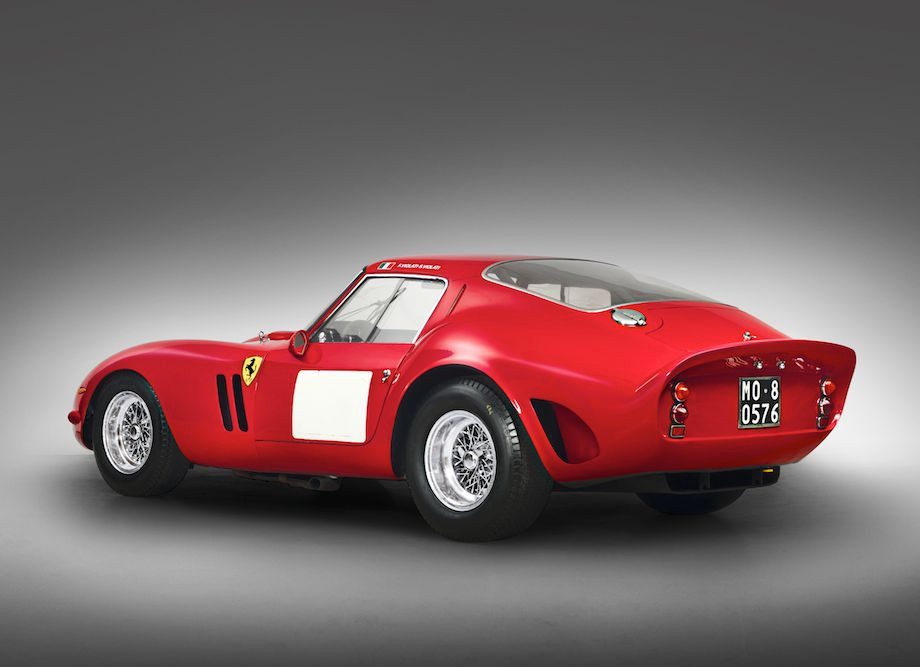
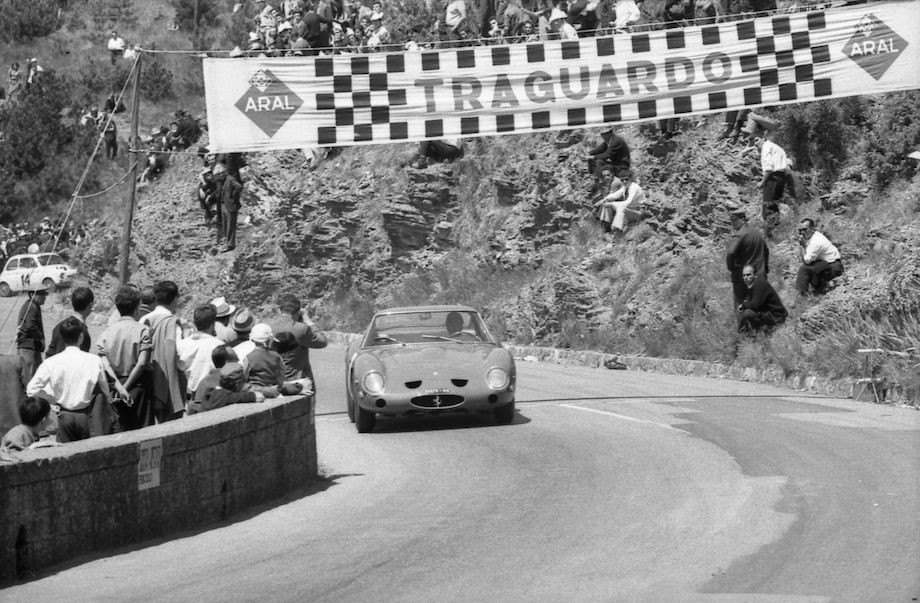
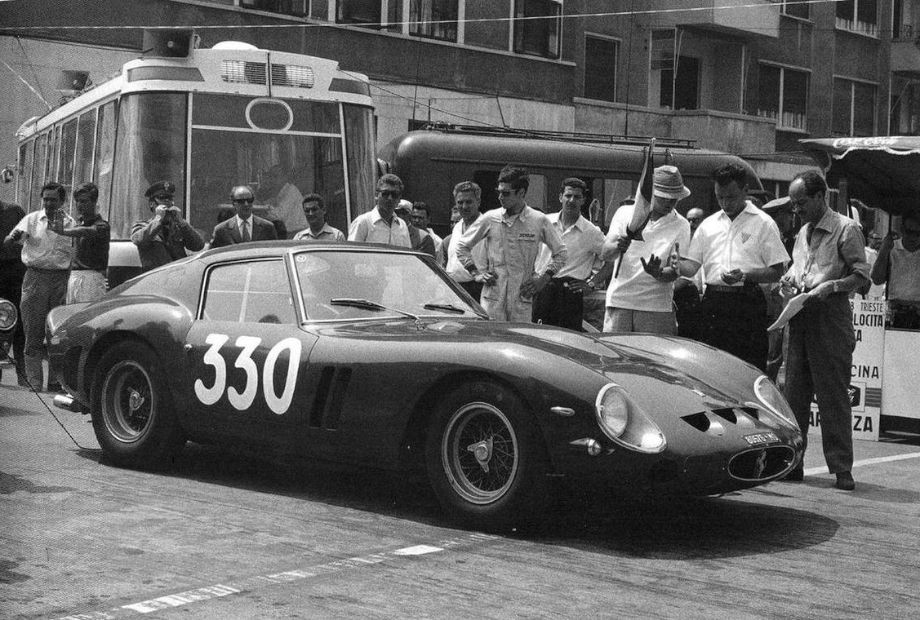
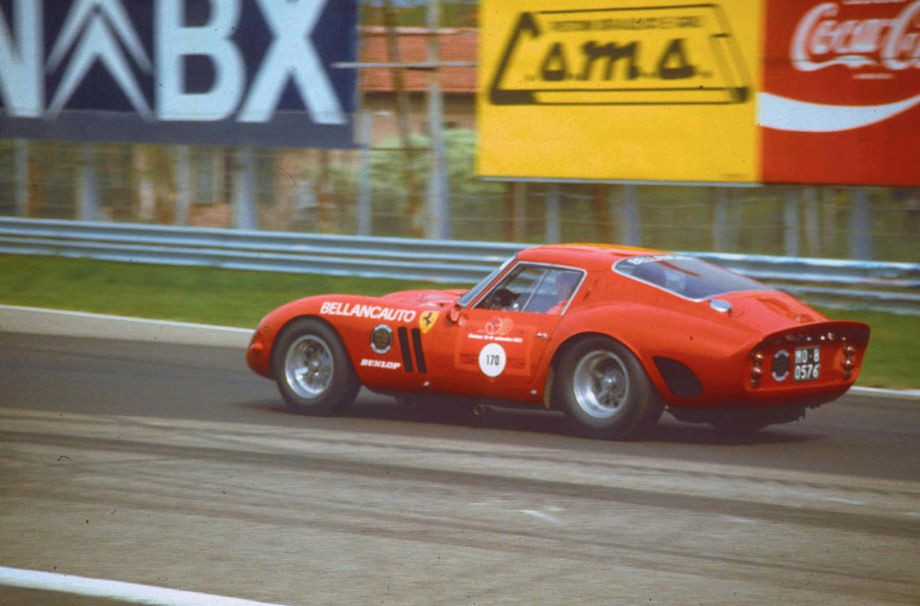
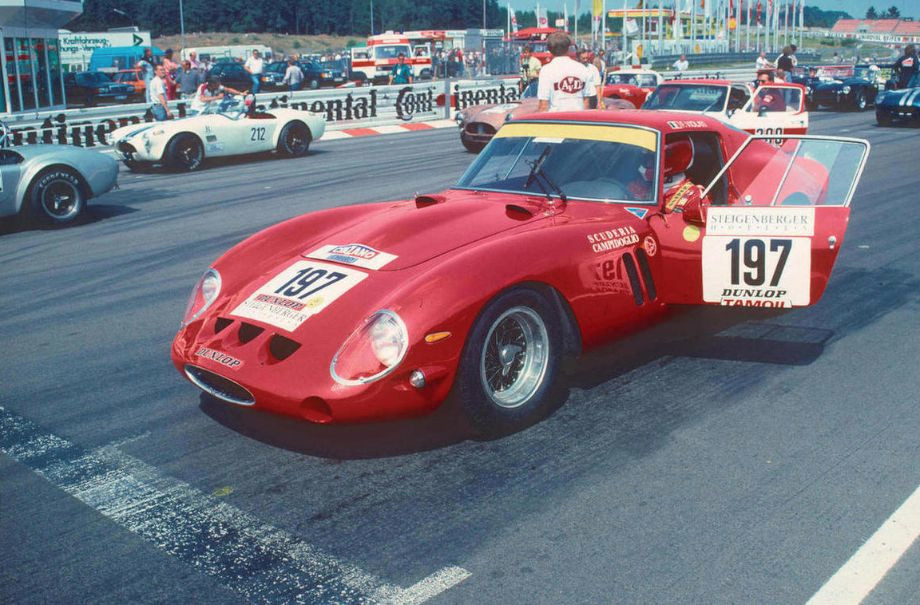
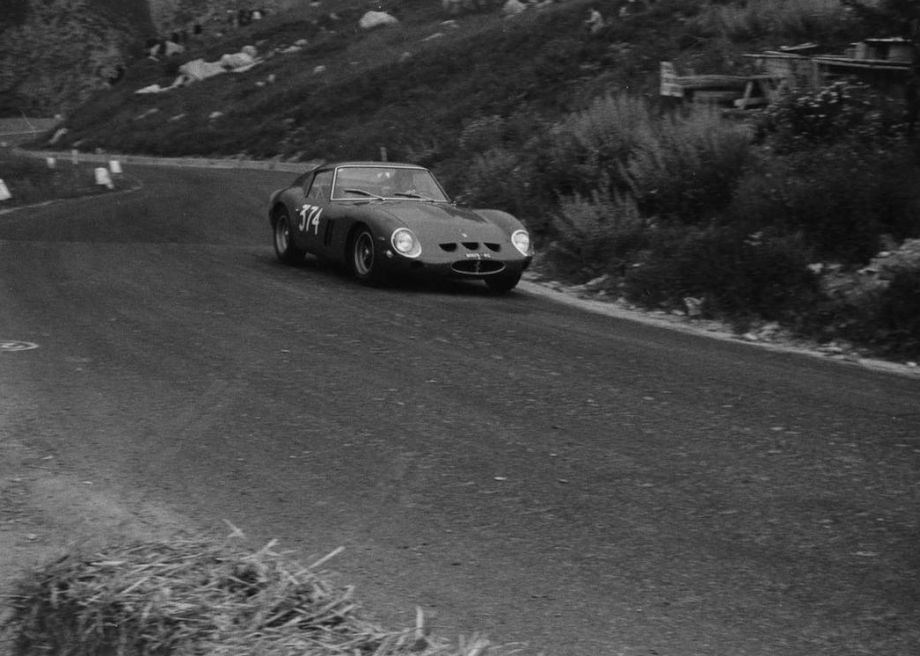
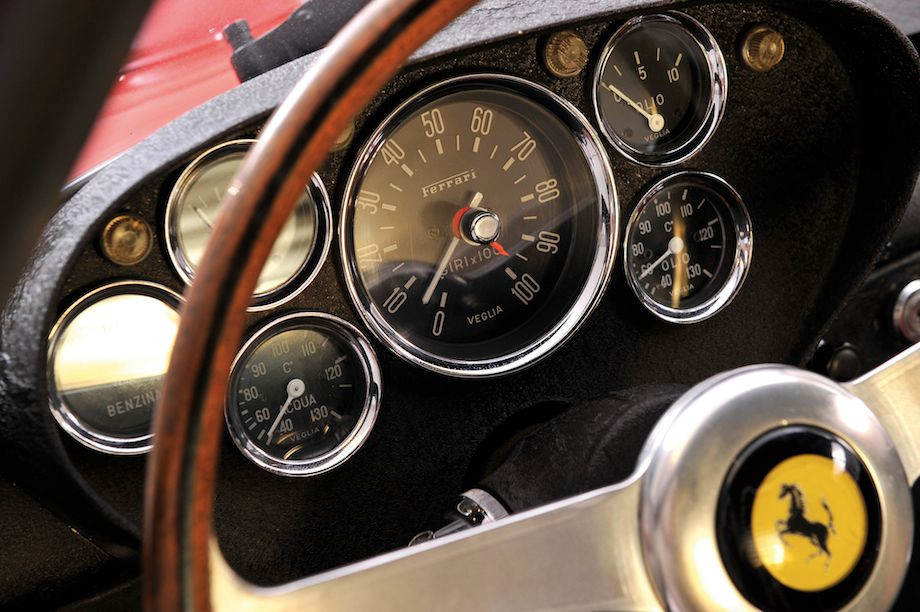
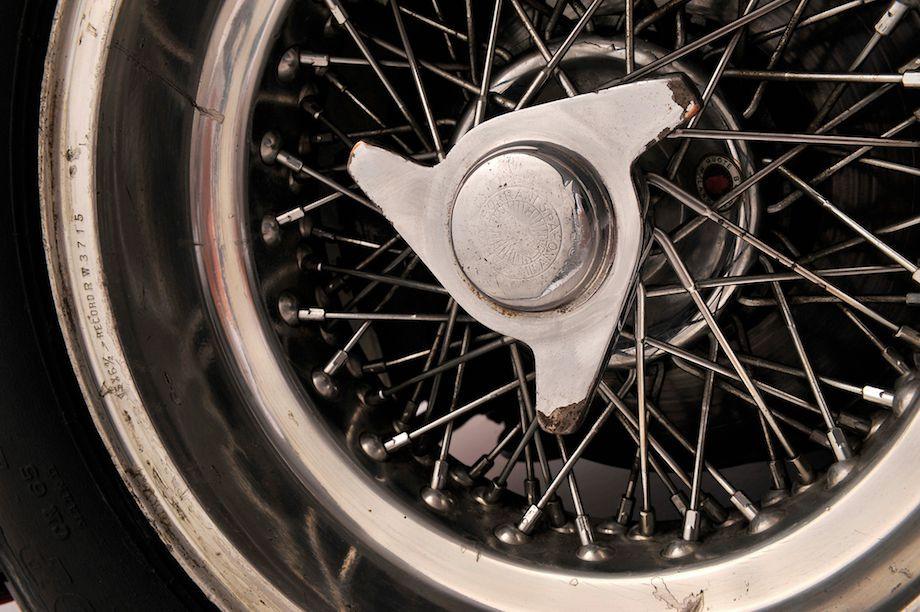
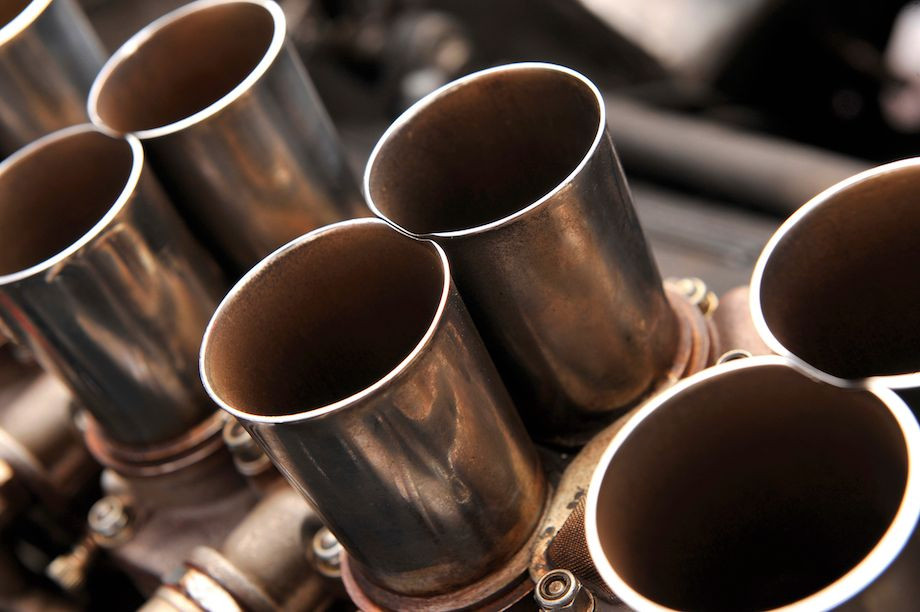
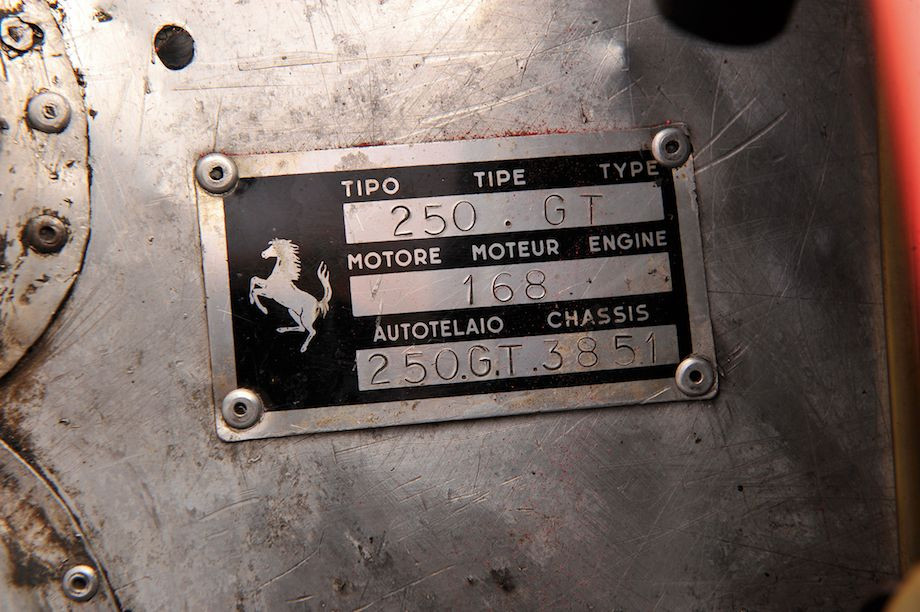
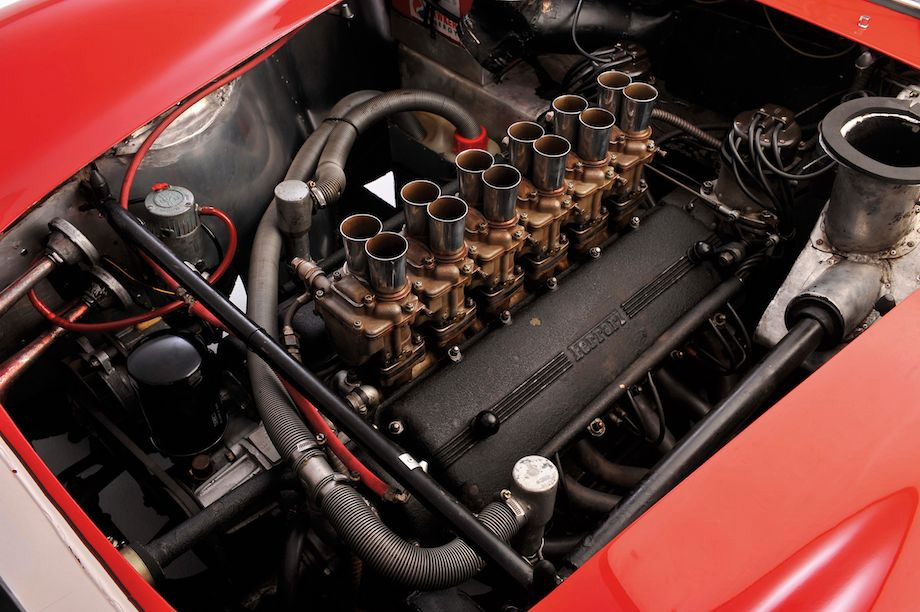
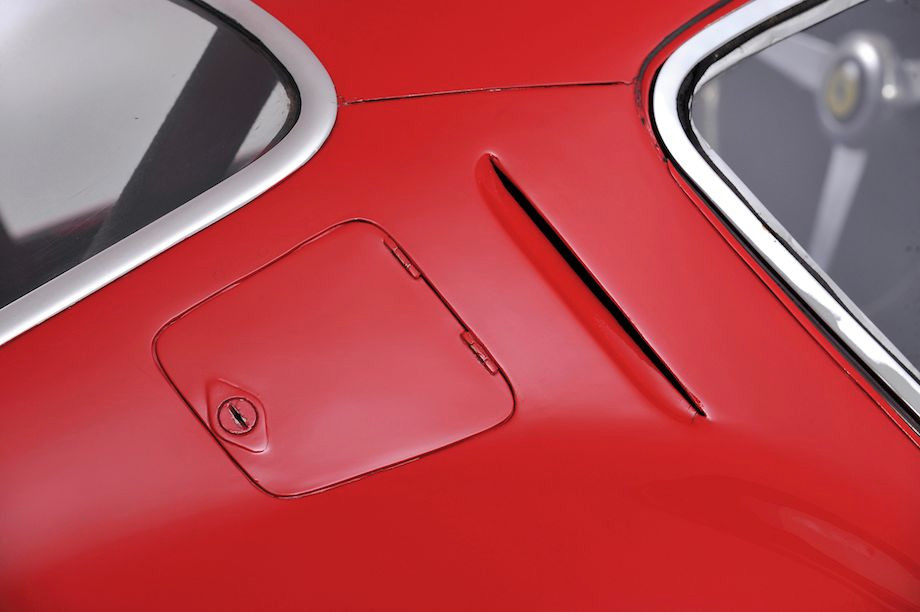
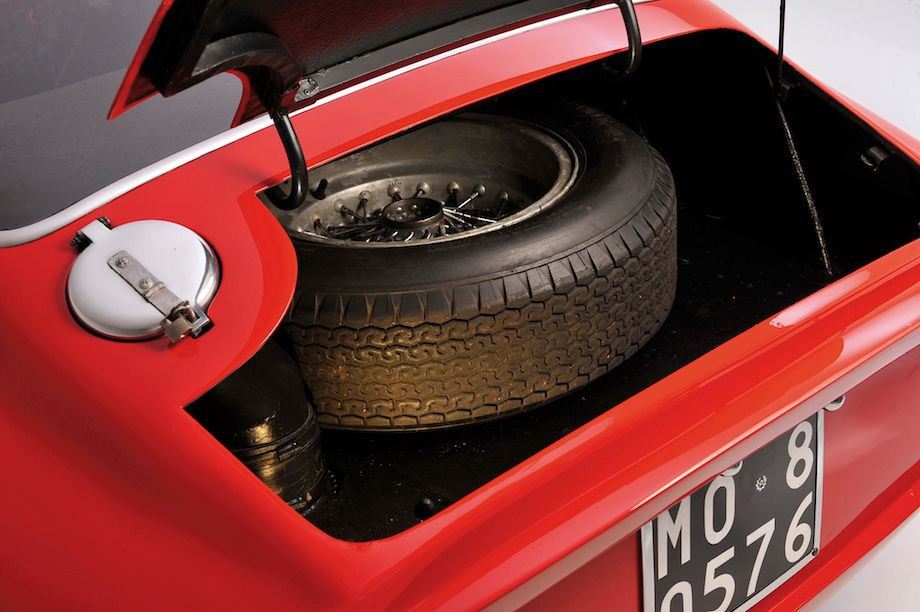
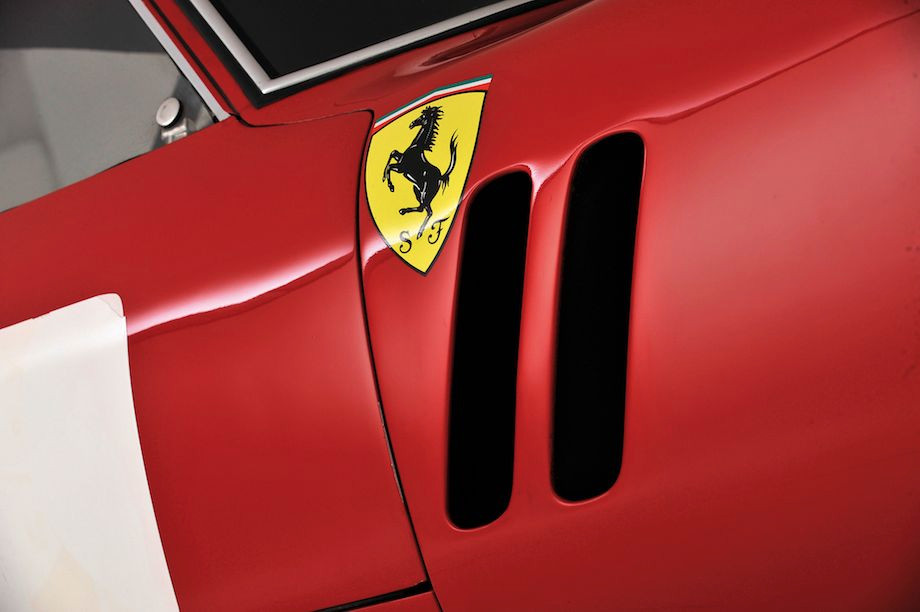
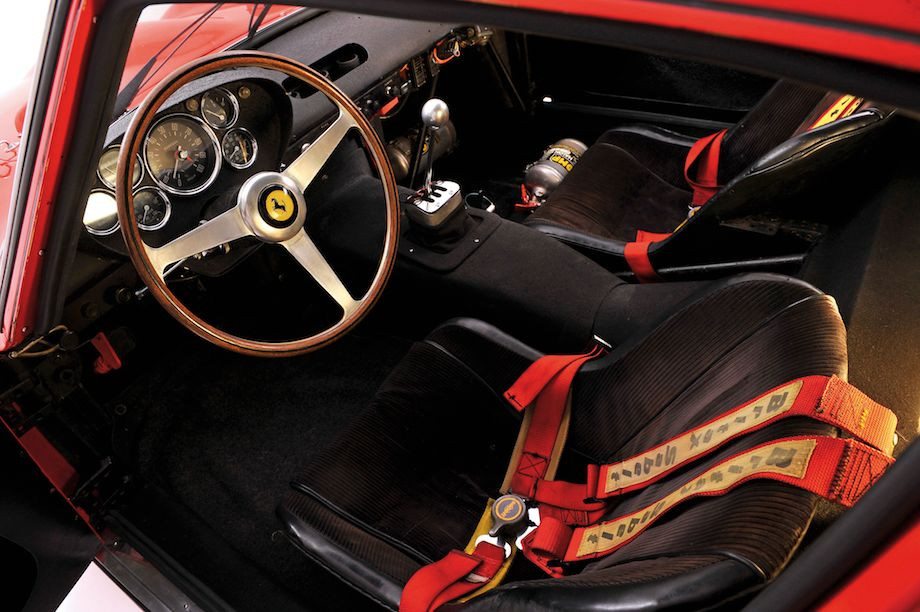
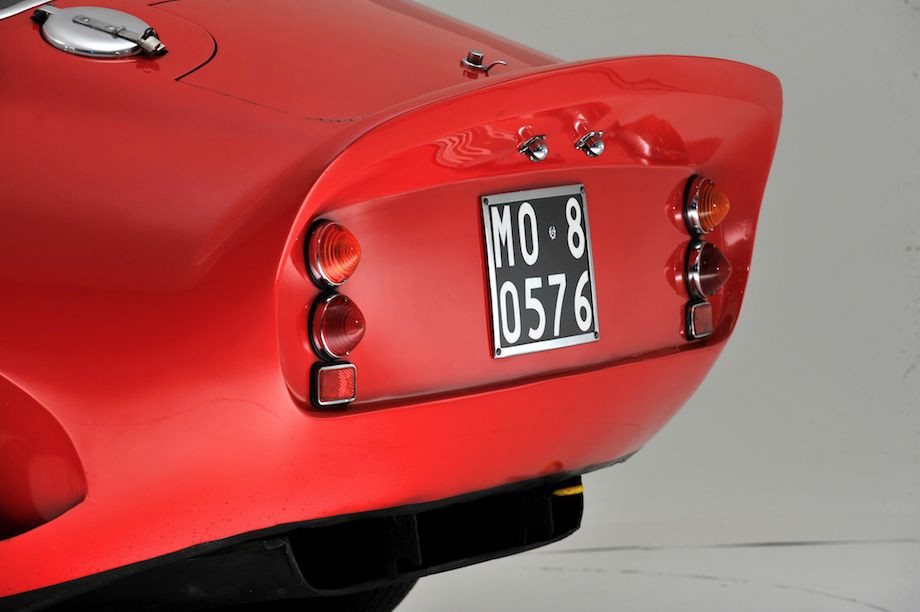
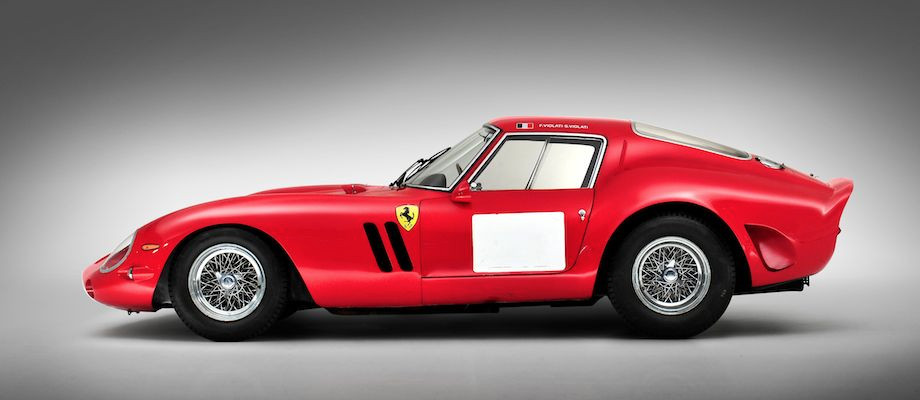
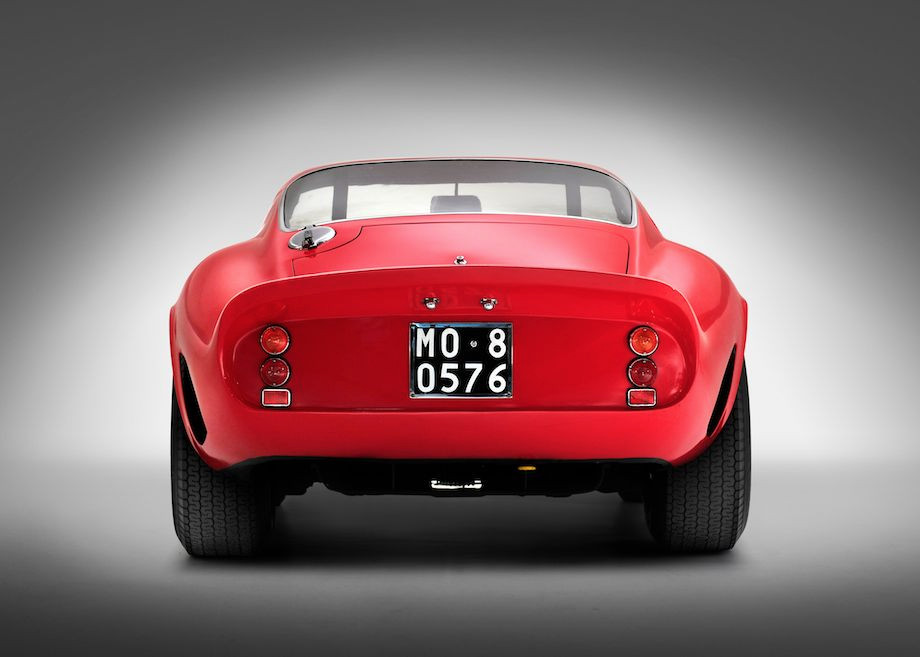
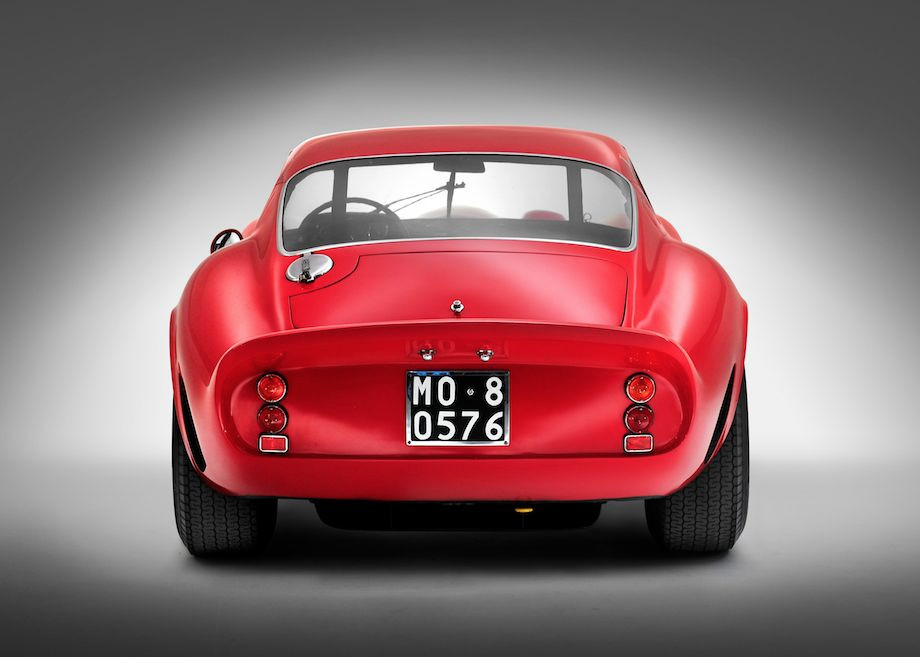
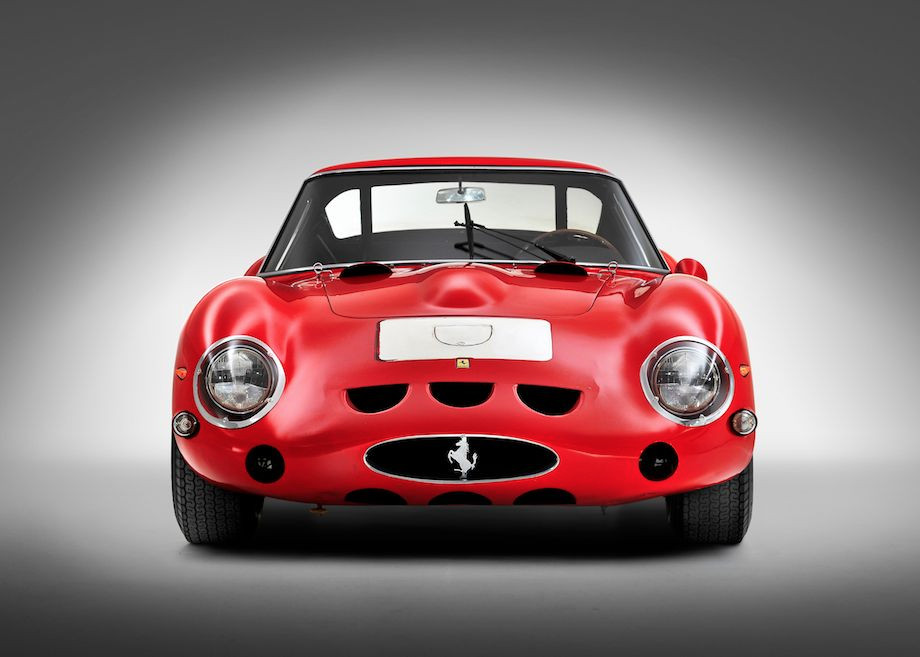
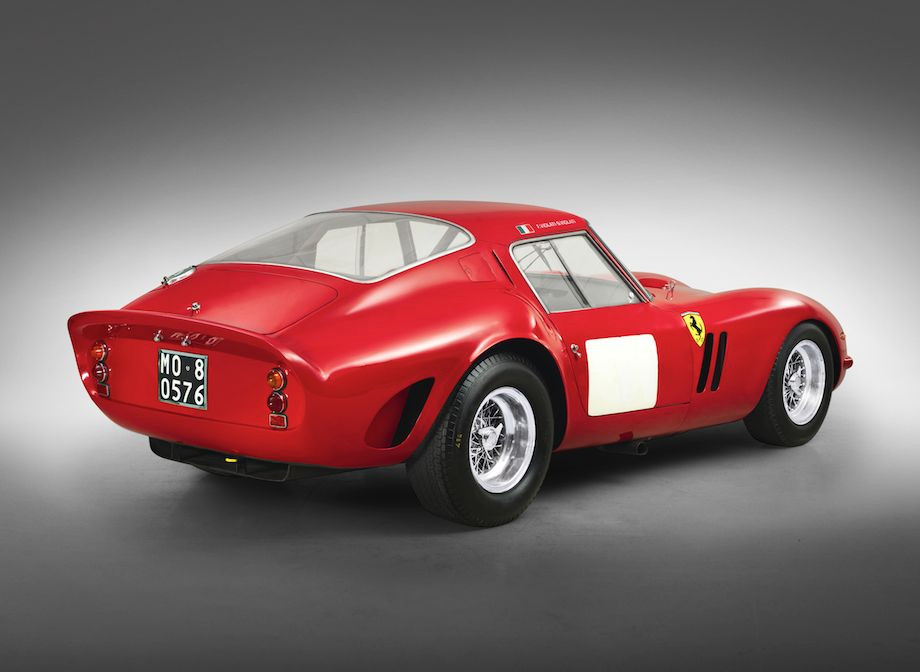
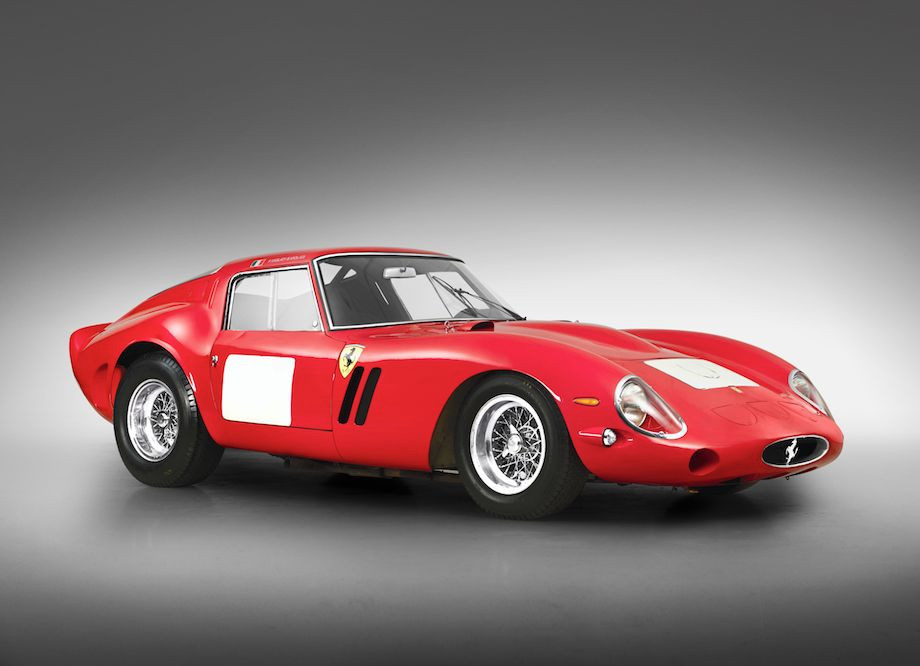
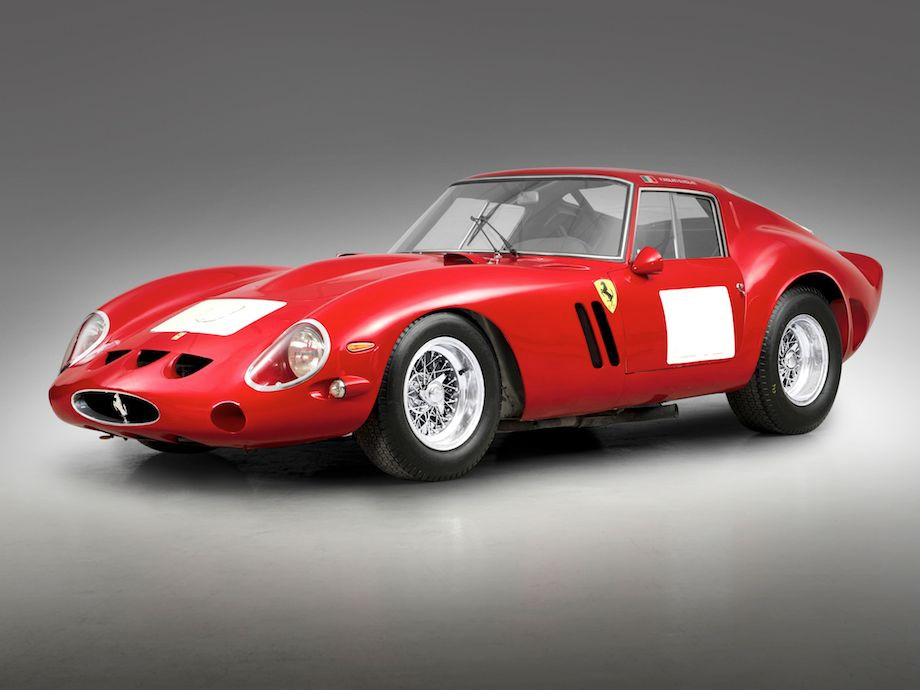
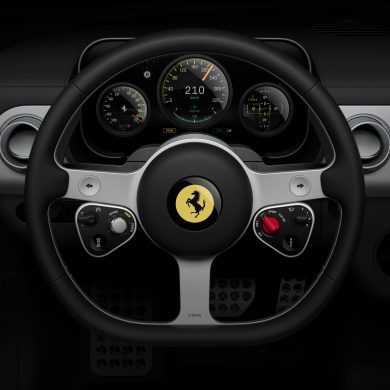
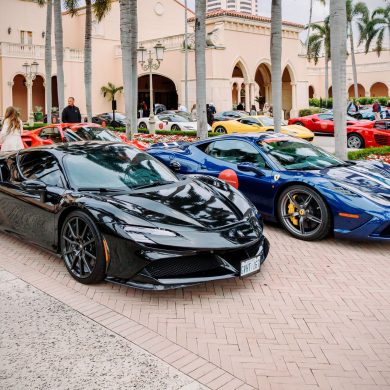
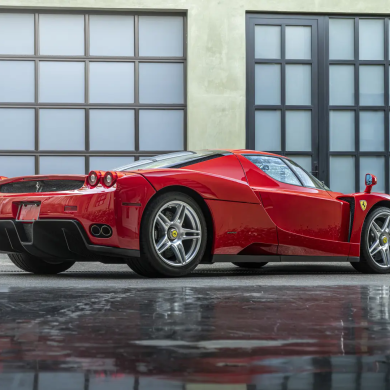
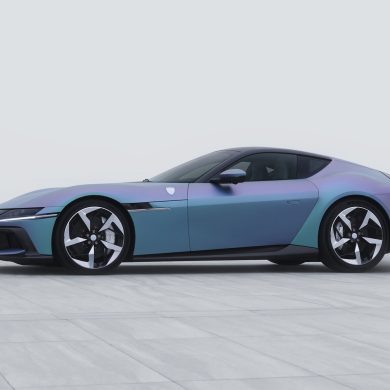
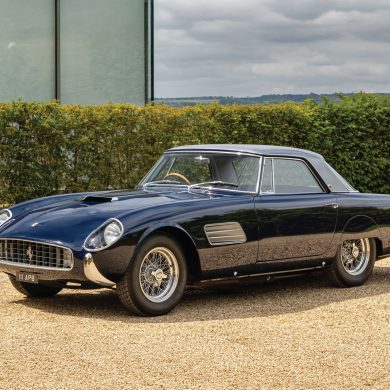


This car was built the day after I was born, all great things were built in 62.